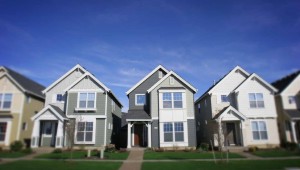The current global coronavirus pandemic is impacting all aspects of social, economic and mental health, but it’s also impacting the retirement security of millions of Americans.
The reason is that housing, including rental expenses and the level of homeownership, have all been negatively affected by the viruses’ economic impact.
Homeownership is one of the greatest engines behind retirement wealth creation. Along with 401(k)s, pensions, savings, and Social Security, housing equity completes the formula for how much money most Americans will have to fund their retirements.
But all that is now changing.
And, if the 2008 recession is any indicator, these changes could evolve over the next decade and impact all income groups.
Delayed Home Purchases Are Now Here
These changes will cause many first-time homebuyers to delay purchases. Job insecurity, no money for down payments, and constriction in housing and rental inventories will keep costs near their present levels. For people graduating in a period of economic uncertainty, the Gen Z group, the impact will be even worse and could shape their homeownership expectations for years to come.
Homeownership inequality will also increase by income groups, according to Chief Economist at Apartment List, Igor Popov. This will hit low-income groups the hardest. “Since 2008, the bottom ten percent of earners have seen their housing costs rise, while the richest quarter of the population has actually seen their housing costs fall,” Popov wrote.
“The pandemic’s economic effects are likely to accelerate this trend. Over the next two years, higher earners will take advantage of low borrowing costs for refinancing and abundant luxury rental inventory, while lower-income households will struggle with economic uncertainty and even greater competition for an already tight inventory of affordable housing. “
Home Ownership Trend is Declining Worldwide
Many housing experts point to the 2008 mortgage and derivatives fraud recession as being the starting point for the decline in homeownership trends in the US. However, this decline started decades before in the US and Europe. A paper, The End of Mass Homeownership? Changes in Labour Markets and Housing Tenure Opportunities Across Europe, by Rowan Arundel, of the University of Amsterdam and John Doling, of the University of Birmingham, found that job insecurity has emerged as the leading reason why people cannot make the financial commitment a mortgage entails.

The authors wrote: “One particular dimension of this has been a fundamental and long-term shift in the nature of labour markets in terms of both the security of employment and financial rewards of work to growing sections of the labour market. To varying extents in different advanced economies, these changes have increasingly eroded the flow of people gaining well-paid and secure jobs, especially among younger people.”
The “dominance of homeownership” was also evident in the USA, Australia, Canada, and East Asia, but all of these areas have seen the trend reverse since the 2008 recession.
The reasons for the declines are common: higher unemployment, underemployment, contract insecurity or increasing disparities in job rewards, especially due to gains in productivity compared to wage increases paid to workers. “The broad effect has been to reduce the proportion of national populations that have well-paid and secure jobs,” the authors said, and these are the primary reasons why mortgages are approved.
In terms of retirement planning, the decline in homeownership also parallels rising polarity between salaries, with growth in lower-paid jobs and higher-paid jobs occurring at the same time that jobs paying medium wages decreased. This applies to the US, and “the data points to distinct polarization across these 16 countries (in the EU 15) with the highest and lowest paid occupational groups increasing their share of employment by 6% and 2% points respectively, while the medium-paid group decreased by 8% points,” the paper said.
Time for More Realistic Retirement Planning
People planning for retirement also report their retirement nest eggs are paltry. A survey by the Employee Benefit Research Institute found that 40% of those surveyed said the total value of their household’s savings and investments, excluding the value of their primary home and any defined benefit plans, is less than $25,000. This includes 19% who have less than $1,000 in savings.
For those who own homes and hope for significant appreciation in the future, the virus has already slowed down that process. A CNN article from January 2020 said housing price increases have already stalled. And that was before the virus outbreak in the US began around January 2020. According to the article, “the weakness in home price growth is likely to continue in 2020 as sales could decline by 1.8%. That’s alarming because lower home sales in a tight supply environment could force sellers to reduce prices.”
Post-virus, housing prices should decline more, accompanied by more reluctant home buyers or those who cannot qualify for a mortgage. This also will change the job market. “Life as we knew it has now changed abruptly and drastically for an unknown period, as was the case after 9/11,” according to Hilco. 
Another piece of bad news is that workers lucky enough to have public pensions are seeing their benefit payments decrease, even despite the record run-up in the stock market.
A Forbes article by Edward Siedle, found that the S&P 500 bull market that crashed March 13, 2020, after an 11-year historic run that returned 400%, did not result in an increase in public pension benefits. The article found that “public pension benefits were not increased one iota over the period.” In fact, it was just the opposite; the bull market did not increase benefits, but since the 2008 recession about 50% of all states cut pension benefits.
The lesson for average public employee workers is that the states don’t increase your benefits in good times, but decrease your benefits any chance they get, regardless of the returns in the stock market.
Retirement planning professions, inside of corporate HR departments and outside, should inject these new realities into their client discussions. Discussing the old, hackneyed truisms of asset allocations and risk tolerances alone, outside of this new virus-impact context, is misleading happy talk that misleads clients about their long-term retirement sustainability.











